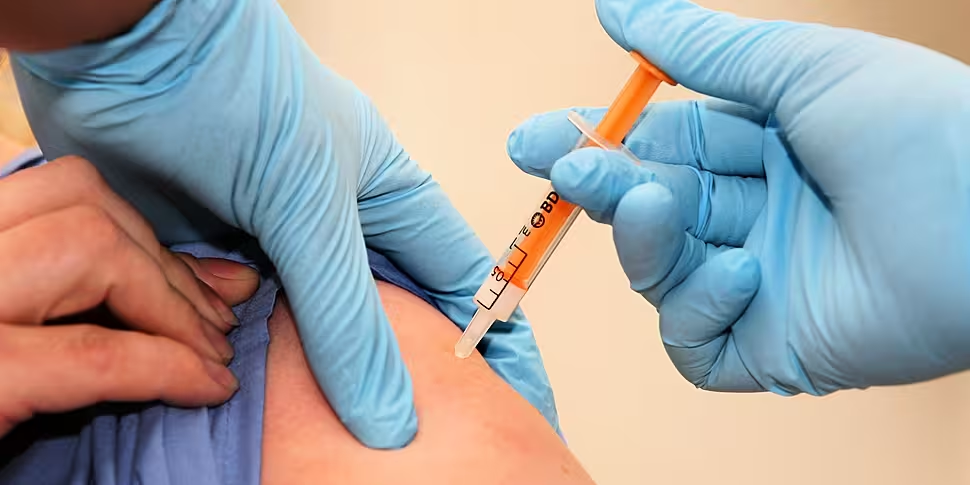Work is underway to establish a compensation scheme for people who have suffered damages as a result of a vaccination.
It was one of the recommendations of a report from Mr Justice Charles Meenan into medical negligence.
However, there are no plans "at present" to set up a compensation scheme specifically for the COVID-19 vaccines.
The Health Research Board (HRB) has also reviewed the vaccine injury redress programme in other jurisdictions.
The Government says the expert group's report - in addition to the HRB's evidence review, and consultation with other departments and State agencies - are informing the development of the proposals.
It says work to advance policy development in this regard "is under way in the Department of Health."
Michael Boylan is a solicitor representing 80 clients who have taken cases against the State arising from the 2009/2010 swine flu vaccination programme.
He told Pat Kenny this has been a long time coming.
"It's been talked about for 20 years and... it's a scandal it hasn't been introduced.
"It would alleviate huge suffering for victims and families, in the rare cases that a vaccine may cause the injury".
Under the proposals, the scheme would not assign blame.
"Typically a 'no fault' scheme you would remove the requirement to establish any negligence on the part of the vaccine manufacturer or the State, or lack of informed consent or lack of proper warning about the rare adverse effects of a vaccine.
"All of that would be taken off the pitch.
"You would still have to prove that the vaccine, more likely than not, has caused the adverse side effect.
"Usually there's a temporal relationship between the side effect and the administration of the vaccine - that's one of they key things you would have to establish".
'That was the easy part'
But he says the harder thing to prove is any negligence, such as in the case of the swine flu vaccine.
"Very quickly, within a year of administration [of] mass vaccination across Europe, the clinicians started to notice a huge spike in narcolepsy cases.
"The European Union and the European Medicines Agency established an expert group.
"The relationship was established and there was a 13-fold increase in the number of young children with narcolepsy following the administration of vaccine.
"And there was a working group established here as well which came to the same conclusion.
"That was the easy part of it, but the more difficult part was to establish negligence".
He says while the manufactures usually have a "cast iron indemnity" to protect themselves, the State should step in.
"The vaccine manufacturing companies will not supply any government, any country with a vaccine unless there is a cast iron indemnity in the contract to say that the State must pick up the tab for anybody injured.
"The vaccine companies, to that extent, have a free ride."
And he suggests a wider scheme used in the Nordic countries, which covers adverse effects to all drugs, could be applied here.
"They fund those schemes by levying a small percentage, charge, against the turnover of the pharmaceutical companies and that's how it's funded.
"So I don't see why it couldn't be introduced on a similar basis here".
Additional reporting: Sean Defoe









